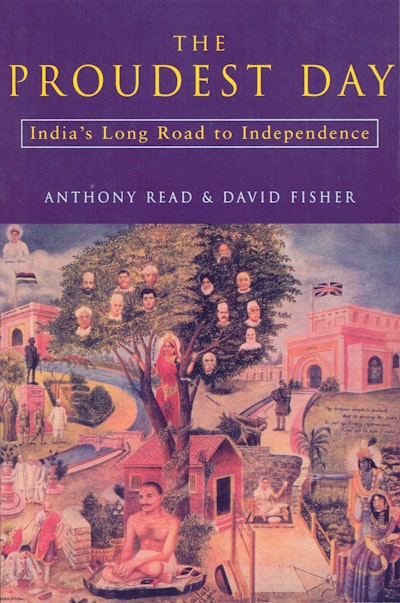- Published: 25 September 1998
- ISBN: 9780712661423
- Imprint: Pimlico
- Format: Trade Paperback
- Pages: 592
- RRP: $42.00
The Proudest Day
India's Long Road to Independencre
- Published: 25 September 1998
- ISBN: 9780712661423
- Imprint: Pimlico
- Format: Trade Paperback
- Pages: 592
- RRP: $42.00
A thoroughly splendid history of an exceedingly complicated subject...Read and fisher review events before the 20th century at a brisk pace, as a prologue to the great drama spread across three quarters of their book...and as the narrative proceeds towards the final act at midnight on 14 August 1947, so it becomes more scholarly. the characteristics of the principal cast are memorably presented
Geoffrey Moorhouse, Daily Telegraph
What Indians needed in their golden jubilee year was some good old personality-driven political history of the Raj...and that is exactly what Read and Fisher have done...They have made the most eventful years of our history as fascinating as they should be
Indian Sunday Express
The narrative goes beyond the chronicling of historical fact and assumes a quality of subtle story-telling. It is well-paced, intelligent and perceptive, scripted with a measure of the assurance that bridges the best of fiction and non-fiction writing. More importantly, there is love and sympathy for its subject, a human quality is achieved only when the text goes beyond mere documentation. The quality of writing - its pungency and sense of theatre - is matched by the rigorousness of the research...One of the profound epic tales of modern world history
Financial Times
